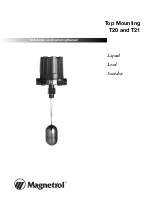
33-14
Catalyst 3560 Switch Software Configuration Guide
78-16156-01
Chapter 33 Configuring MSDP
Configuring MSDP
Using TTL to Limit the Multicast Data Sent in SA Messages
You can use a TTL value to control what data is encapsulated in the first SA message for every source.
Only multicast packets with an IP-header TTL greater than or equal to the ttl argument are sent to the
specified MSDP peer. For example, you can limit internal traffic to a TTL of 8. If you want other groups
to go to external locations, you must send those packets with a TTL greater than 8.
Beginning in privileged EXEC mode, follow these steps to establish a TTL threshold. This procedure is
optional.
To return to the default setting, use the no ip msdp ttl-threshold {ip-address | name} global
configuration command.
Controlling Source Information that Your Switch Receives
By default, the switch receives all SA messages that its MSDP RPF peers send to it. However, you can
control the source information that you receive from MSDP peers by filtering incoming SA messages.
In other words, you can configure the switch to not accept them.
You can perform one of these actions:
•
Filter all incoming SA messages from an MSDP peer
•
Specify an IP extended access list to pass certain source/group pairs
•
Filter based on match criteria in a route map
Command
Purpose
Step 1
configure terminal
Enter global configuration mode.
Step 2
ip msdp ttl-threshold {ip-address | name}
ttl
Limit which multicast data is encapsulated in the first SA message to
the specified MSDP peer.
•
For ip-address | name, enter the IP address or name of the MSDP
peer to which the TTL limitation applies.
•
For ttl, enter the TTL value. The default is 0, which means all
multicast data packets are forwarded to the peer until the TTL is
exhausted. The range is 0 to 255.
Step 3
end
Return to privileged EXEC mode.
Step 4
show running-config
Verify your entries.
Step 5
copy running-config startup-config
(Optional) Save your entries in the configuration file.
















































